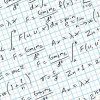- Joined
- 24 December 2010
- Posts
- 1,154
- Reactions
- 50
I read somewhere today that said about 80% of the trades in the market is done by computers. Then I found the following article, which said:
http://www.smh.com.au/business/turb...-wild-moves-20110811-1inuq.html#ixzz1Uifudu4Q
It all seems pretty amazing to me, so I was wondering if anyone knows even a bit about how it works? Is it as simple as giving a computer instructions like "buy if SP reaches x, sell if SP reaches y"? Or is it a helluva lot more complicated than that?
Global markets are going up and down like a yo-yo, stemming from uncertainty engulfing the US and euro zone, but there other factors involved in the heavy turnover in equities markets.
ASX chairman David Gonski made a very important point at a lunch speech yesterday when he said high performance trading had affected the way people look at investing in companies. He said that high performance trading meant the average shareholder stays for 20 minutes in a company.
http://www.smh.com.au/business/turb...-wild-moves-20110811-1inuq.html#ixzz1Uifudu4Q
It all seems pretty amazing to me, so I was wondering if anyone knows even a bit about how it works? Is it as simple as giving a computer instructions like "buy if SP reaches x, sell if SP reaches y"? Or is it a helluva lot more complicated than that?


